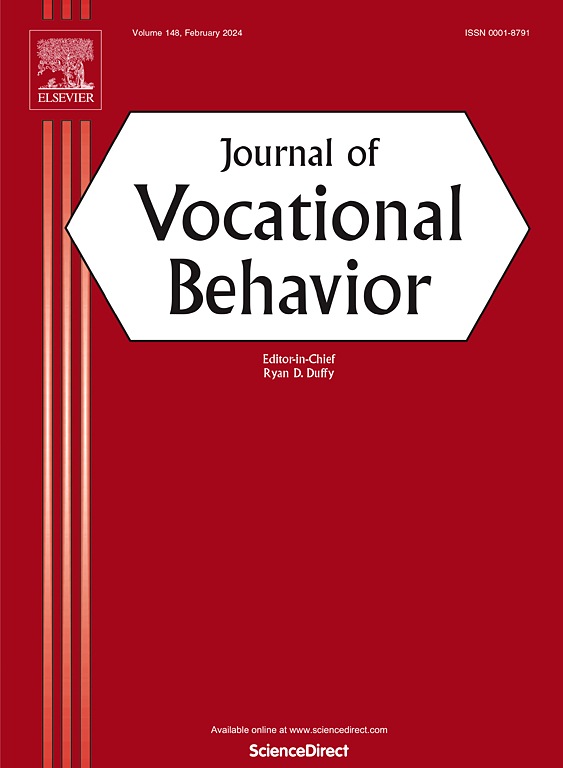职业轨迹中的社会不平等:职业如何塑造社会群体之间不平等的任务分配
IF 5.2
1区 心理学
Q1 PSYCHOLOGY, APPLIED
引用次数: 0
摘要
最近的研究表明,日常任务分配是职场中社会群体之间不平等的一个重要驱动因素。在这篇概念性论文中,我们探讨了职业如何以一种促进社会不平等的方式影响任务分配。我们开发了一个框架,将任务分配与相同工作的从业者之间的职业轨迹差异联系起来。特别是,该框架解释了与职业相关的任务、刻板印象和声望如何系统地影响工作场所的任务分配。我们认为,职业印记导致一个职业的典型(非典型)从业者被分配相对更多的核心(外围)任务,并解释了这一机制如何影响从业者的职业发展(相对于停滞或退出)。本文通过将职业对未被充分探索的不平等机制的影响理论化,即工作场所的任务分配,扩展了当前关于社会不平等的理论。本文章由计算机程序翻译,如有差异,请以英文原文为准。
Social inequality in career trajectories: How occupations shape unequal task allocation between social groups
Recent studies suggest that day-to-day task allocation is an important driver of inequality between social groups in the workplace. In this conceptual paper, we explore how occupations influence task allocation in a way that fosters social inequality. We develop a framework that links task allocation to differences in career trajectories between practitioners of the same job. In particular, the framework explains how the tasks, stereotypes, and prestige associated with an occupation systematically influence task allocation in the workplace. We argue that occupational imprints lead to typical (atypical) practitioners of an occupation being allocated relatively more core (peripheral) tasks, and explain how this mechanism shapes practitioners' career progression (vs. stagnation or exit). This paper extends current theory on social inequality by theorizing the influence of occupations on an underexplored mechanism of inequality, namely task allocation in the workplace.
求助全文
通过发布文献求助,成功后即可免费获取论文全文。
去求助
来源期刊

Journal of Vocational Behavior
PSYCHOLOGY, APPLIED-
CiteScore
13.10
自引率
5.40%
发文量
85
期刊介绍:
The Journal of Vocational Behavior publishes original empirical and theoretical articles offering unique insights into the realms of career choice, career development, and work adjustment across the lifespan. These contributions are not only valuable for academic exploration but also find applications in counseling and career development programs across diverse sectors such as colleges, universities, business, industry, government, and the military.
The primary focus of the journal centers on individual decision-making regarding work and careers, prioritizing investigations into personal career choices rather than organizational or employer-level variables. Example topics encompass a broad range, from initial career choices (e.g., choice of major, initial work or organization selection, organizational attraction) to the development of a career, work transitions, work-family management, and attitudes within the workplace (such as work commitment, multiple role management, and turnover).
 求助内容:
求助内容: 应助结果提醒方式:
应助结果提醒方式:


